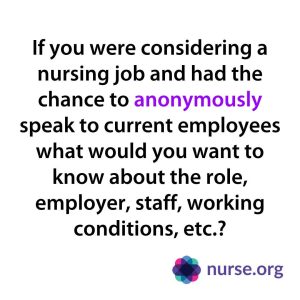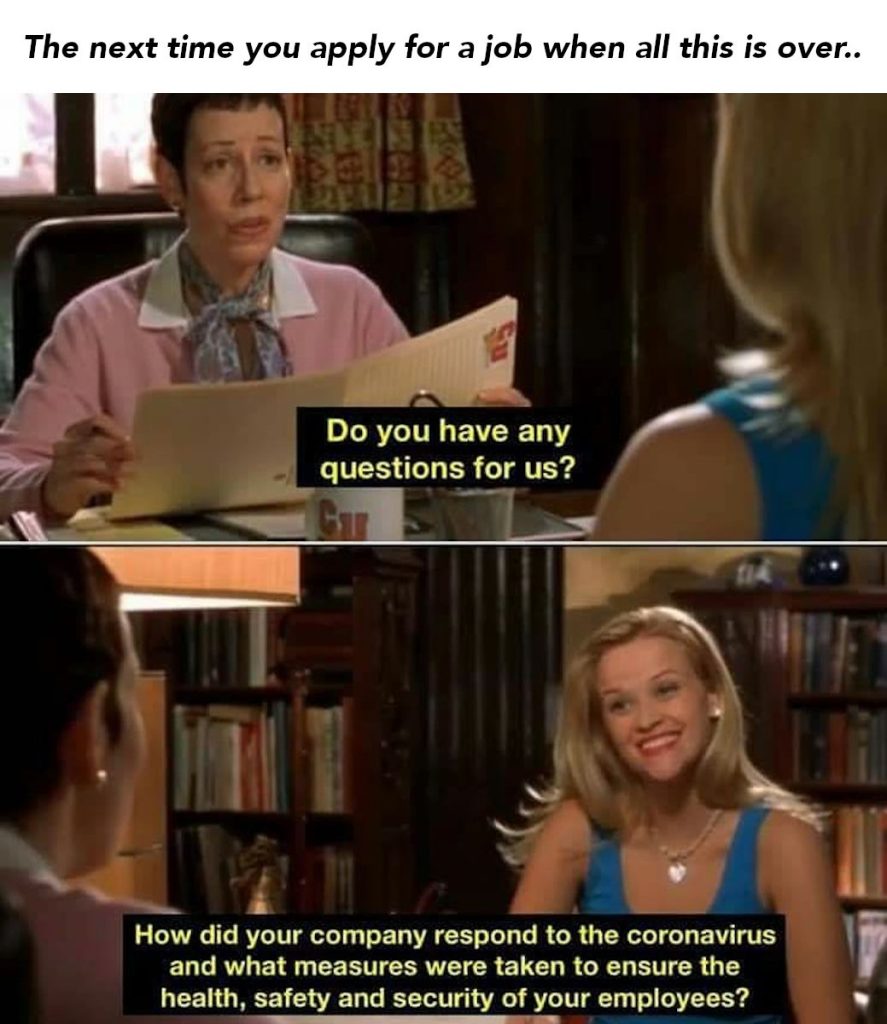 Congratulations, NurseRecruiter has helped you connect with recruiters from top travel nursing agencies, and you have been offered several awesome travel nurse assignments. You’re ready to take your first steps as a newly-minted travel nurse! But before you hand in your notice, you have decisions to make. Which job is right for you? What do you need to know to make that decision?
Congratulations, NurseRecruiter has helped you connect with recruiters from top travel nursing agencies, and you have been offered several awesome travel nurse assignments. You’re ready to take your first steps as a newly-minted travel nurse! But before you hand in your notice, you have decisions to make. Which job is right for you? What do you need to know to make that decision?
Recruiters are a terrific way to learn about travel nursing jobs you might never come across on your own. They’re no substitute for your own diligent search, but they are a vital addition to any nurse’s job-seeking tool kit. But you have to ask them the right questions if you want to figure out which assignment best meets your needs and aspirations. We suggest starting with these ten:
10) How Long Has This Job Been Open?
It is inevitable that some roles just won’t be filled quickly. It’s not necessarily a sign that anything is wrong. Furthermore, if an RN position has been open for a long time, that might mean the employer is willing to negotiate. So a seemingly stale opening might actually be rather promising. There’s a flip side to this, however. Some agencies tend to invest more effort in fresh jobs, and spend less attention on them over time. So a job that’s been open for a long time might be one that the recruiter is not actively working on.
9) Why Has This Role Been Open as Long as It Has?
Even if it’s not necessarily a red flag if a job has been open for long, it might be! So it’s good to cut to the heart of this question to figure out what’s going on. Consider the following reasons why a job could be open for, say, a month:
- The area might not be desirable
- The pay might not be as high as it should be
- The employer might be overly picky
- The employer might be seeking a hard-to-find specialty or skill set
- Red tape in the hiring process might be slowing things down
- The employer might be seen as something of a revolving door
Not all these reasons need to be deal-breakers; a lot comes down to your personal circumstances. A location which might be undesirable for one job-seeker might be fine for another — maybe you have family there, or your significant other could attend school there. The salary question could be circumvented by negotiating for non-monetary perks, such as additional vacation time, or a premium shift. Skill set issues might be resolved if you commit to continuing education. But if any of these issues are involved, it’s important to think through how important they are for you, and how you might be able to resolve them.
8) Do You Have an Exclusive on the Job?
Here is where the rubber meets the road. If the recruiter is not the only person handling this job, your chances are diminished (though certainly not zero), as the employer is probably looking at a lot of resumes. Multiple recruiters can also mean you are contacted by more than one person about the same job. Recognize that employers and recruiters alike tend to disapprove if you work with more than one recruiter on an opening. For recruiters, for example, it means they have to split their fee. So ask questions to make sure you aren’t being pitched by more than one recruiter for the same opening. On the other hand, there is no reason why you can’t work with one recruiter on one job at a specific employer, and with a second recruiter for a different job at that same employer. Just be sure to keep good records.
If the recruiter is the only one trying to get the position filled, this improves your chances. If the position has been open for a while, however, it raises questions. Maybe the recruiter hasn’t handled this opening as a priority? Maybe they had one idea of what the job was about, but things have changed, or the employer set them straight?
7) Where Is the Job Located?
This seems like an obvious question, but it can be important to dig a little deeper than just what state or city the job is in. Each location might have its own charms, depending on what you like, of course. You may love country living or the mountains, or being in a bustling city, or living near a beach. You might even be all right with any of that, as long as the pay is good and it’s for a short term. But some practical things are always good to keep in mind.
 For example, whether you’ll work at a hospital, nursing home or somewhere else, is it centrally located, or easy to reach? Nursing can be exhaustive and you might want to avoid a long commute. How easy is it to find housing in the area, and how affordable is it? Costs of living can vary a lot from location to location; how does this city compare?
For example, whether you’ll work at a hospital, nursing home or somewhere else, is it centrally located, or easy to reach? Nursing can be exhaustive and you might want to avoid a long commute. How easy is it to find housing in the area, and how affordable is it? Costs of living can vary a lot from location to location; how does this city compare?
If you think you might want to stay on somewhere after this assignment, are other RN jobs plentiful in the area? While you are asking, find out where the nearest airport is. Let’s say the job is in Abingdon, Virginia, for example – would you have thought that the closest airport is the Tri-Cities Regional Airport, across the state line in Blountville, Tennessee?
6) Why Is the Job Open?
There are any number of reasons why RN positions might be open. Here are a few:
- The department is expanding and this is a new opening. These are often the most promising opportunities, and the booming demand for nurses means there will be more!
- The previous nurse employee has retired or left nursing, or their contract expired and it was not renewed, or the nurse decided not to renew it.
- An employee has gone on extended parental leave and their position needs to be filled while they are away. This means it’s a long-term temporary position, open until the employee returns or departs for good.
- The employer has terminated the former employee.
Your recruiter might not be able to share all of these details with you, for example if the former employee was terminated. But knowing this kind of information doesn’t just help you assess the job opportunity, it can also provide ways to position yourself positively. Let’s say the previous nurse was fired for excessive tardiness. This is your chance to show how responsible and reliable you are by demonstrating just how punctual you are.
5) What Is Expected of Me?

Sad but true: many employers write poorly-worded job descriptions. It’s sometimes up to you to read between the lines and make sure you get the info you need about the job requirements and working conditions. What exactly does the hospital/visiting nurse service/nursing home expect from you? Would you be on call at any time? Would you have to deal with potentially violent patients? Ask your recruiter, and ask again if you get to the interview round. Don’t hesitate to probe for some details: what are the hospital’s practices on mandatory overtime? Has the institution invested in the necessary equipment for lifting and moving patients? This is how you’ll be spending your days, so it’s best to know what you are getting yourself into.
4) What Are the Three Most Important Qualifications the Employer Is Looking For?
A job description can mention a laundry list of requirements and priorities, but some of those will be more important than others. It’s possible, for example, that the job description mentions overnight hours, but those don’t happen too frequently in practice. It can also be the other way round: maybe the description glosses over how important administrative capacities are for the job, when paperwork will actually take a major percentage of your time.
There’s a follow-up question that works well with this one, especially once you get to the interview process: Can my assignment be extended or renewed if I want to keep working at the facility after the assignment ends?
3) What Else Can You Tell Me About the Company?
Google is your friend, but the recruiter may very well have some insider information about the hospital, nursing home, or home health company that’s hiring. Maybe the nursing home is about to be sold or the hospital is changing its Chief Surgeon. This question also helps you assess how well the recruiter knows the employer and the nature of the position. If the recruiter does not know much about either, consider what that means about the kind of relationship they have with the employer.

2) What Is the Interview Process?
Some employers want a phone screen before they will do anything else. They may even do it over Skype, Zoom, or Google Hangout, so they can see you as well as hear you. Others will want you to meet with Human Resources or at least talk to them on the phone before you meet with anyone from the department where the position will be. The process might even entail a background check or a drug test, or both.
How long will the process take? If it’s an extensive process, that will also give you an idea of the time frame involved. If you are already interviewing with other employers, or at least have your resume out there, be candid with your recruiter about that. Employers may move more quickly if they feel you are in demand and are about to go off the market.
Finally, we get to the #1 question:
1) What Is the Compensation Package for This Role?
Notice how you should ask about a ‘compensation package’ rather than the salary? That’s because it’s not just going to be about the salary. There’s more to take into account than that! It’s also about shifts and vacation time, maybe even continuing education. Find out if the company pays for any of your travel, and whether it will help you find housing. They might provide the services of a realtor, present you with a stipend for finding a temporary apartment, or even offer individual or shared housing. If they provide you with a stipend, how much is it? If you have to share, how are travel nurses paired up? Do you have any recourse if you don’t get along with any of your house or apartment mates, or have other compatibility issues ? What if you have a family, where will they be housed? Dig deep here, too. What kinds of insurance does the employer offer? What about retirement savings benefits, particularly if that day is coming close?
What it all comes down to? Don’t just look for a job; invest yourself in the job search process. Work takes up a third of your life or more, so ask your travel nurse recruiter questions! If you and your recruiter can work well together as a team, that bodes well for your future career as a travel nurse. Good luck, believe in yourself, and be bold!
2022 update: more questions to ask before accepting a new assignment!
We originally posted this article in 2017, and the questions outlined above are evergreen ones! But let’s add a couple of topical recommendations that apply in particular in this post-pandemic age of chronic understaffing.
Nursing was always a job that requires stamina and resilience, but at no point in recent history have working conditions been as challenging as during the worst days of the Covid-19 crisis. And some employers turned out to be a lot more willing and able to protect and care for their healthcare workers than others. For your own sake, you need to be able to get a sense of how your prospective employer measured up!
Understaffing has been a chronic problem in nursing for many years, but these past few years it has spun out of control at many workplaces. With the healthcare labor market as tight as it is, it’s okay to ask about it before just wading in and hoping for the best. Nurse Advocate Sarah Warren has suggested a few good examples of such “reverse interview” questions:
- Do staff members report feeling supported by leadership?
- What is the staff attrition/turnover rate?
- Does this unit frequently go out of ratio? What is the response when this happens?

